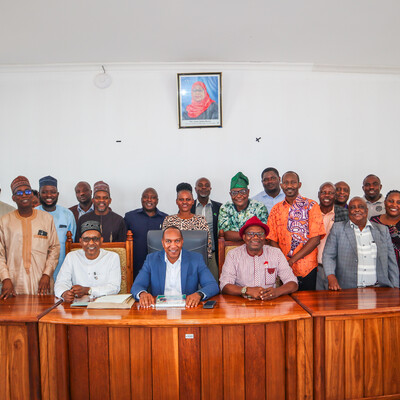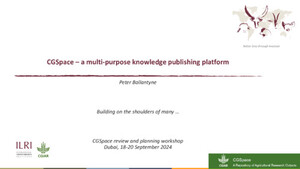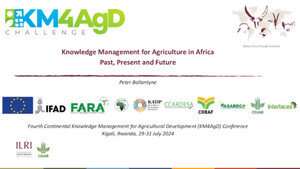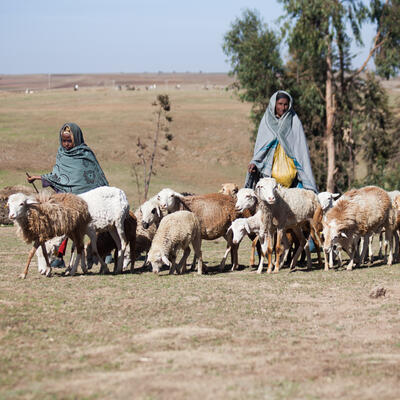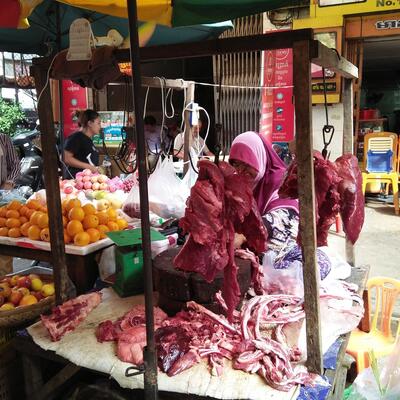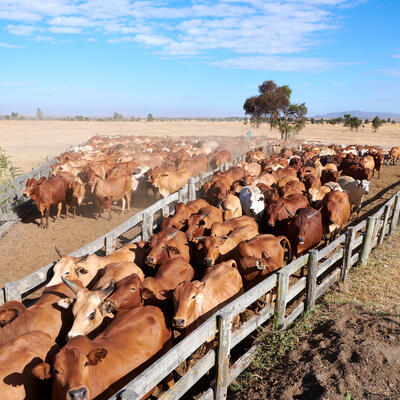

CGSpace – enabling discovery, use and reporting of CGIAR knowledge products
Posted on
In mid-September 2024, twenty information and knowledge managers and communicators from CGIAR centers and entities met to review and plan directions for the CGSpace platform and wider collaboration.
Following a busy year - successfully managing a major technical upgrade, supporting CGIAR tracking and reporting of knowledge products (visualized here), and incorporating new and substantive full content providers (notably IFPRI) - the meeting was an opportunity to take stock, share lessons, set priorities and renew enthusiasm for this service involving all CGIAR centers.
For the first time, we welcomed colleagues and their wider insights from the CGIAR System Office teams working on Performance and Results Management, Digital Services, and C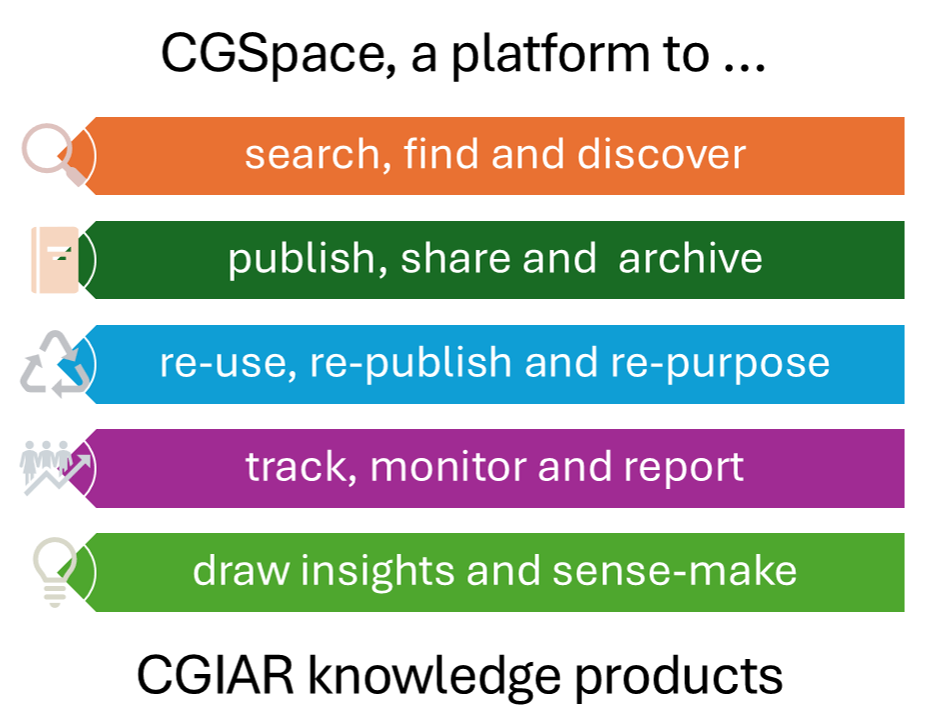 ommunications and Outreach.
ommunications and Outreach.
After an initial ‘tour’ of the CGSpace ecosystem (see presentation) and updating on wider CGIAR science, digital and communication developments, most discussions took place in smaller working groups that identified solutions and strategies for different challenges.
Time was also spent preparing for the knowledge product reporting process for current CGIAR research initiatives and platforms as well as looking towards the future 2025-2030 CGIAR research and innovation portfolio.
Agenda
Key discussion topics included:
Supporting CGIAR performance and results management reporting where we reviewed the upcoming end of 2024 timeframe and workflows, emphasizing the need for clear and repeated internal communication across the different actors. Looking forward, we will renew the guidelines on what constitute different types of ‘knowledge products’ and requirements in terms of minimum descriptive and intellectual property information. We will also look at ways to improve the efficiency, consistency and quality of what is recorded in CGSpace to better match what the reporting system requires.
The emerging CGIAR 2025-2030 portfolio was briefly discussed to help us start planning to work with the new science groups to ensure they can most effectively use CGSpace to publish, disseminate and report on their knowledge and other products. This will likely include some changes to the content architecture of CGSpace, awareness and outreach with the new groups to ensure they are fully supported, and renewed guidelines for managing their content through CGSpace.
CGSpace management and delivery where our aim is to extend the capabilities of the core delivery team to deal with growing demands, provide oversight and guidance and generally contribute to a more resilient and sustainable service. The changes include a formal ‘co-hosting’ by ILRI and IFPRI, a joint ‘CGSpace delivery and support team’ to run the core tasks, setting up a ‘CGSpace oversight group’ from different stakeholders to provide strategic guidance and coordination, facilitation of a dynamic and diverse community of practice (CoP) of content managers, champions and other people involved along the CGSpace value chain; and renewed ‘task teams’ drawn from the CoP to advance agreed priority issues and actions.
Outreach, training and communication where we want to step up to reach priority stakeholders – those who use the front or the back of the platform directly, those using the services and products of the platform, and those we want to help us sustain and grow the collaboration.
We also used time together to dive deeper into key dimensions of the service where we identified desired improvements that can be taken up in the coming months. These include providing greater clarity on knowledge products, with greater consistency, quality and guidelines for each; continuing to focus on good, consistent and useful metadata with a revitalized metadata working group agreeing and improving standards; making ‘back-end’ curation tasks and workflows more efficient; improving the ‘front end’ experience for users; enabling more effective republishing of our content across digital platforms; delivering as fast, secure and reliable technical infrastructure as possible; updating and extending our AReS content visualizer and reporting tool; and getting much better insights from the various usage and metrics data available to us.
Peer to peer sharing
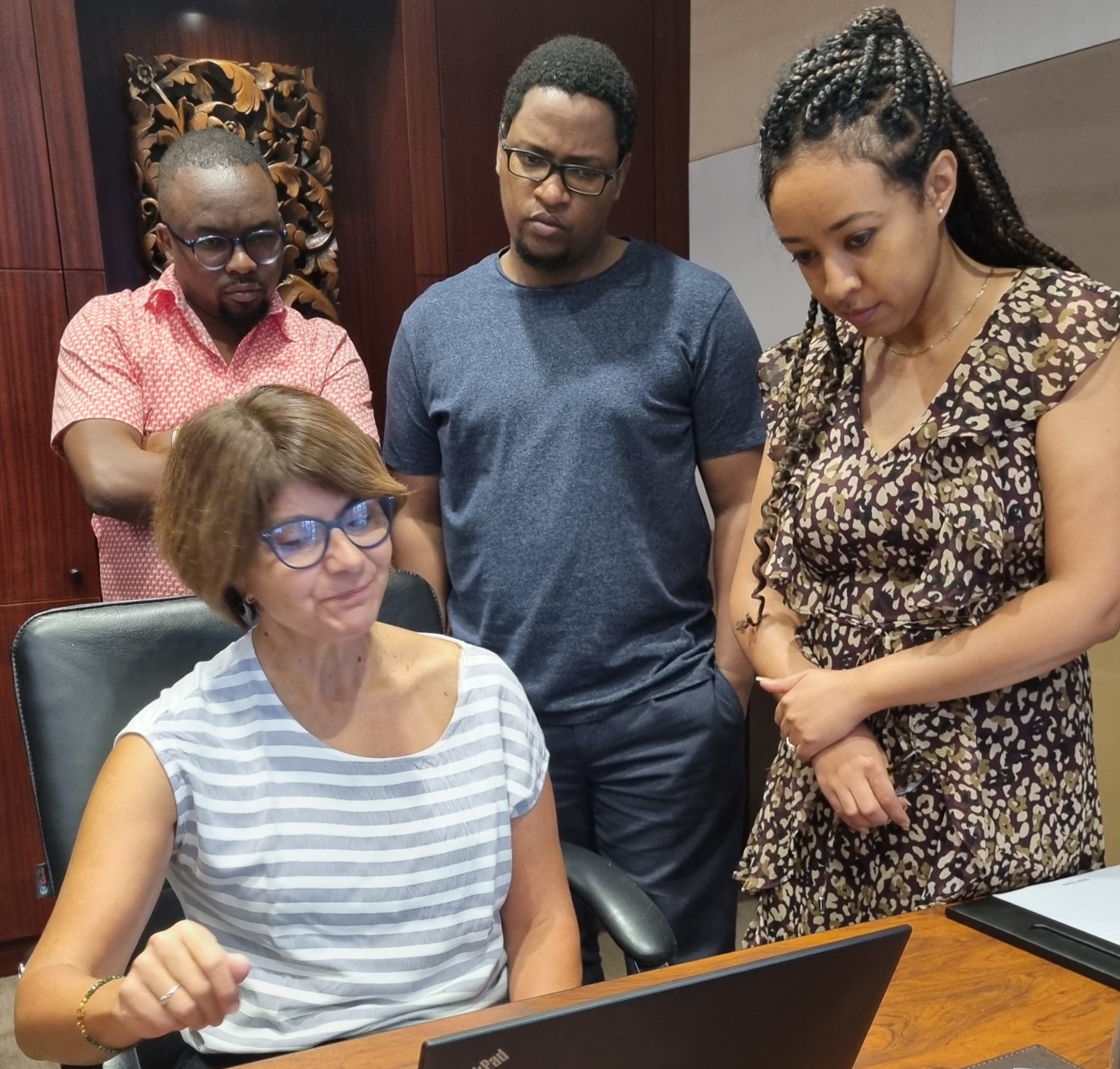 One feature of the CGSpace collaborating group is the depth and diversity of the people forming the community of practice. Alongside the solution-driven sessions and task teams, the meeting provided informal ‘open spaces’ for participants to share and discuss different topics of interest, including:
One feature of the CGSpace collaborating group is the depth and diversity of the people forming the community of practice. Alongside the solution-driven sessions and task teams, the meeting provided informal ‘open spaces’ for participants to share and discuss different topics of interest, including:
- An AI tool at IRRI used to auto-generate Agrovoc metadata from PDF files - facilitating rich content description.
- MyCGIAR – a new internal tool intended to interconnect all the internal information resources across the CGIAR.
- Altmetric – a service used to track social and policy attention to knowledge products
- TIP – a tool used within ABC for scientists to contribute information on knowledge products for submission to CGSpace
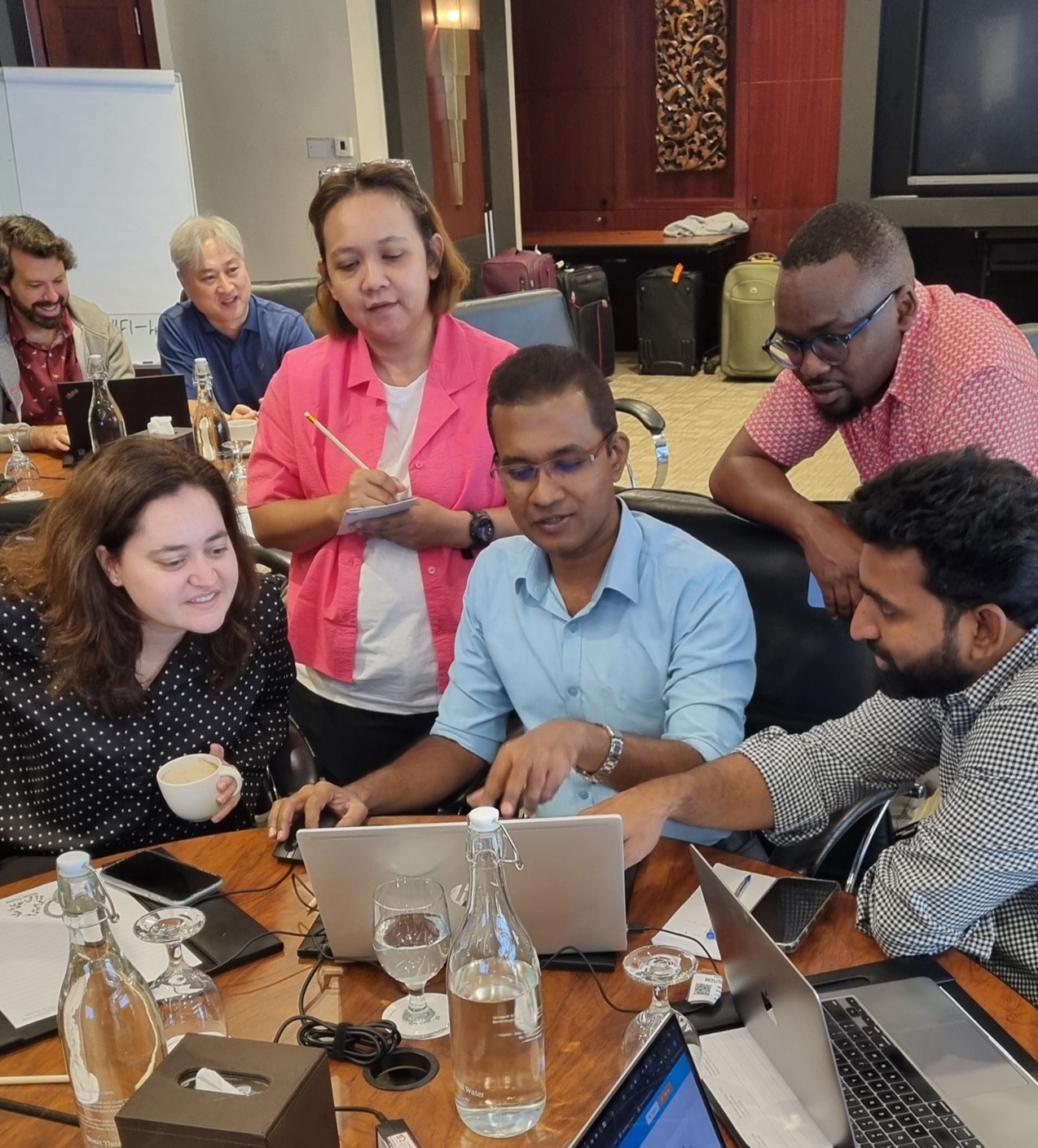 Migration – a set of lessons and guidance from IFPRI on effectively managing the migration of their existing repository content to CGSpace.
Migration – a set of lessons and guidance from IFPRI on effectively managing the migration of their existing repository content to CGSpace.- Cataloguing – a set of tips from IFPRI on efficiently adding content to CGSpace with consistency and quality in mind.
- Climate Change synthesis - an exercise by the CGIAR Climate Impact Platform to collate and review all CGIAR knowledge products 2012-2023 (from CGSpace and other repositories) to map trends and hotspots in CGIAR research.
- ARES – a search and visualization tool developed alongside CGSpace to provide additional search and download options.
- IWMI dashboard – and internal tool to visualize knowledge products and their use
- Web of science – a bibliographic search service, one of its uses being to track citations to CGIAR-authored knowledge products
Next steps and follow up actions
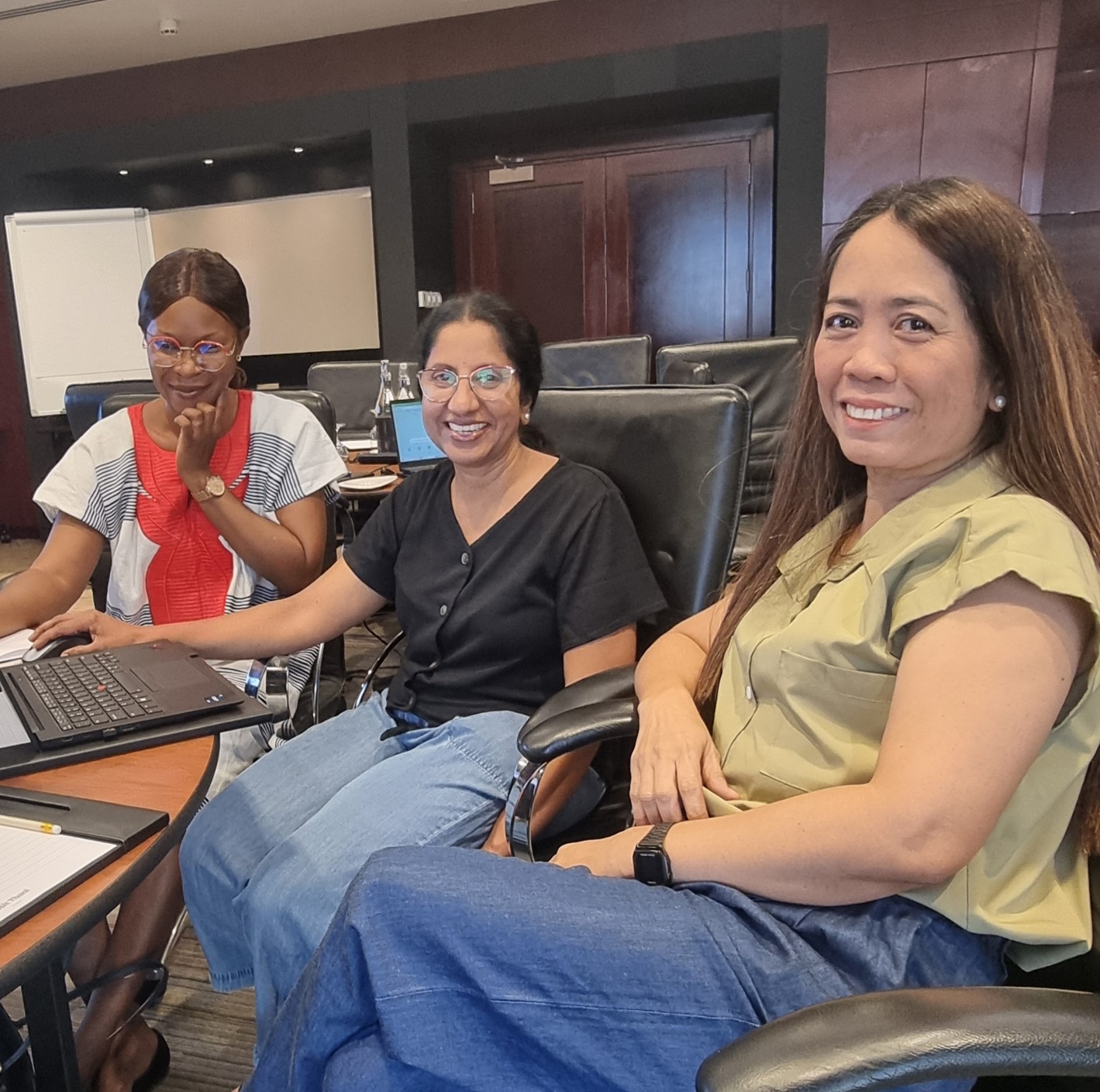 A few key strategic actions were agreed with participants.
A few key strategic actions were agreed with participants.
- First, to propose the terms of reference and members of the oversight and management mechanism.
- Second, to review and re-vitalize our internal communication channels with members of the community of practice.
- Third, to develop an outreach, communications and training ‘plan’.
- Fourth, to re-animate our metadata working group to focus where attention is needed.
- Fifth, to develop updated ‘content management’ guidelines for CGSpace editors – serving discovery as well as reporting needs.
- Sixth, to examine and propose ways to better understand and report use and metrics of our knowledge products.
- Finally, to support the CGIAR initiative and platform reporting cycle scheduled for late November 2024 and, learning from this, prepare for the launch of the new 2025-2030 CGIAR portfolio.
About CGSpace
Established 15 years ago, CGSpace runs on state of the art and open DSpace technology. Focused on the diverse knowledge, communication, learning and data products of CGIAR and its partners, it uses consistent metadata, assigns permanent identifiers and uses open API’s to facilitate:
- Finding and discovering knowledge outputs and products, many fully and openly accessible
- Publishing and permanent archiving of research results for future use
- Re-use and re-publishing of knowledge products across other digital platforms
- Tracking knowledge products usage and attention for monitoring and reporting
- Drawing insights and sense-making across collections of knowledge products.
Post by Peter Ballantyne
You may also like
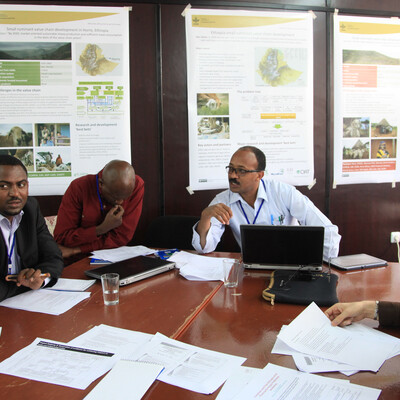
ILRI News
Who owns our knowledge? ILRI’s commitment to open access in livestock research for development
ILRI News
Bridging knowledge gaps in agro-meteorological services for smallholder farmers in northern Nigeria

ILRI News
Beyond smartphones: How citizen volunteers are supporting the drylands livestock market intelligence platform KAZNET in Kenya and Ethiopia
ILRI News
Tanzania launches Africa Accelerated Innovation Delivery Initiative-Livestock project to boost poultry productivity
Related Publications
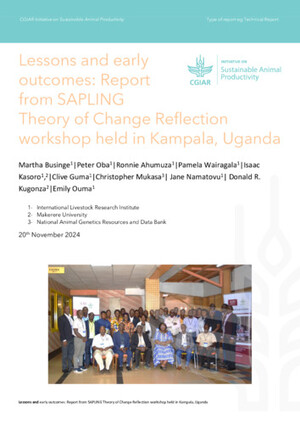
Lessons and early outcomes: Report from SAPLING Theory of Change Reflection workshop held in Kampala, Uganda
- Businge, Martha
- Oba, Peter
- Ahumuza, Ronnie
- Wairagala, Pamela
- Kasoro, Isaac
- Guma, Clive
- Mukasa, Christopher
- Namatovu, Jane
- Kugonza, Donald R.
- Ouma, Emily A.

Knowledge management for projects: A case study of the Capacitating One Health in Eastern and Southern Africa (COHESA) project
- Wairagala, Pamela





